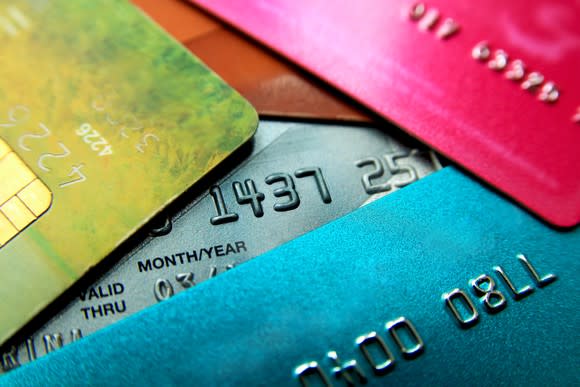3 Smart Things You Can Do With $1,000 Right Now
Pretend that $1,000 just fell into your lap. Maybe you got an unexpected bonus at work, or maybe you got a scratch-off lottery ticket in a Secret Santa and won the money that way.
However you got your hands on it, you have $1,000 you never expected, and you know you should do the right thing with it. It's tempting, of course, to want to use it for something frivolous -- maybe a vacation, clothing, or those limited-edition sneakers you don't really need.
You can buy any of those things if all of your other financial priorities are in line. If you have a well-funded emergency fund, owe nothing on your credit cards, have enough put away for retirement, and have well-stocked college accounts for the kids, then be as wasteful as you want to be. If, however, you're like most people and have not quite met all of those goals, then here are some better ways to use your $1,000 windfall.

Paying down credit card debt is one of the smartest things you can do with an extra $1,000. Image source: Getty Images.
1. Pay down credit card debt
Credit card debt is generally the most expensive debt most people carry. It's not just money you owe, but a sort of taxi meter that's always running.
Your credit card debt grows over time due to interest -- money you're paying for the privilege of borrowing someone else's money. In general, paying down credit card debt will pay off better than most investments. Let's say you use your $1,000 to pay off $1,000 on a credit card that was charging 15% interest. That will save you $150 a year -- a much better return than the 9-10% the major stock market indexes will pay.
2. Add it to your emergency fund
It's generally recommended for people to have six months of living expenses in an emergency fund. That means in a bank account or in other forms of savings that are easy to convert to cash.
Before you can figure out what your emergency fund should be, you need to know what your expenses are. Sit down and add up what you spend. Start with big numbers like rent or your mortgage, and work your way through any loan payments, food, entertainment, and transportation. Generally, you want to be as cautious as possible here -- saving too much is not a problem, while setting aside too little could be.
3. Invest it
If you have no credit card debt and already have an emergency fund, it's smart to invest the money. Before you do that, it makes sense to educate yourself on how to invest in the markets.
The stock market is not the lottery. You're not buying a ticket hoping for a quick payoff. Instead, you should put money into company's you believe in -- brands that you use and that excite you. Yes, you should do some research on the business side to make sure there are no obvious red flags -- even if you really love shopping at Sears, for example, you may want to put your money elsewhere.
Mostly, however, your investments should be in companies you understand. Don't chase winners, and don't check your portfolio every day. Remember, this is a long-term investment, and you will reap the rewards in the long-term.
Be sensible and smart
Would you rather have $10,000 tomorrow or $1,000 worth of nonsense today? That's essentially the question you're being asked. It's hard to put off immediate pleasure for something in the future, but doing that will pay off handsomely.
More From The Motley Fool
Daniel B. Kline has no position in any of the stocks mentioned. The Motley Fool has no position in any of the stocks mentioned. The Motley Fool has a disclosure policy.

 Yahoo Finance
Yahoo Finance 